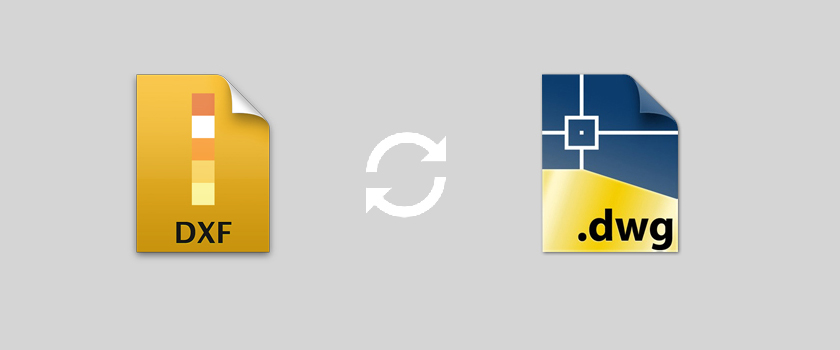Gaming is the fastest-growing industry that has captured the minds of people around the world. Not just that, the gaming field has also created highly paid jobs. Game development, designing, and animations have become high-scope careers.
Young and smart people are trying their luck in gaming careers that are promising and profitable. When it comes to gaming jobs, very few people actually know that game translation can be a lucrative and successful career.
The increased need for game localization leads to high demand for game translations. The purpose of game translation is to reach out to a wider marketplace by eliminating language barriers.
This is the real question to ask because not many people know about the career path they have to take to become a video game translator.
This article is a detailed guide for anyone who wants to pursue game translation as a full-time career.
The translation is basically an essential part of game localization or internationalization. In this process, the content of the game is translated into the native languages of the target audiences.
The purpose of game translation is to create an inclusive gaming environment for people speaking different languages. For game translations, gaming companies can hire translation agencies or professional translators with good experience in the gaming field.
Just like any other translator, a gaming translation translates the textual content of a game into a foreign language. A game translator is a person who has acquired a degree or diploma in linguistics and also understands the technicalities of source and target languages. Moreover, he must be familiar with the cultural intricacies of the targeted language, so the audience can resonate with the game.
There is a common misconception that any bilingual person is a good candidate to do game translations. Just because someone understands both source and target languages doesn't make them a perfect choice for game translation.
A translator should be well qualified and have good experience in the translation field, so he would know how things work in this industry. Similarly, not every translator can do the game translation. You must have exposure to the gaming field and its audiences to do a decent job.
First thing first, the game translator should have a great understanding of both source and target languages. They are not simply bilingual. Having a good linguistic background is critical to creating professional game translations.
Knowing more language pairs adds to the credibility of translators. The translator should have a linguistic degree or certification to get perfect command of translations.
Moreover, it is significant for translators to have fluency in the native and targeted languages. Translators not only have command over the linguistics of the language, but they should be familiar with the linguistics of games as well.
Using the right idioms, and phrases that can capture the attention of targeted audiences is equally important.
Your gaming translation jobs would become 10x easier if you love to play video games. Game translation can be really fun if you have a passion for gaming.
It would help you empathize with your audience and generate perfect translators. Getting into the gaming waters would not be easy because it is a vast industry. You can even choose your favorite game genre to work on.
Having extensive gaming knowledge and passion helps you perform really well as a game translator. Big gaming and localization companies always look for someone who is a pro gamer when it comes to game development, design, or translation.
Being a gamer also keeps you up to date with the latest trends, new technologies in the markets, and audience demands. So, if you have a love for gaming, then you better use your linguistic skills in this industry.
The translation is not a piece of cake, especially when it comes to gaming. A translator has to work side by side with developers, so he better understands the methodology used to create a game.
Lack of context can lead to major issues and it can result in the failure of the whole localization process. Some companies also ask their developers to provide reference material to the translator, so they can develop that understanding of the game and contextualize things more appropriately.
The translator should have the good technical expertise to understand the game methodology. No matter how many commands you have in languages, if you can't understand the gaming methodology provided by developers, it will all end up in a mess.
This can be a major reason why even big companies face problems in foreign countries because of mistranslations.
You should have a creative bone in your body to do game translations. Most people think that translation is not creative work because all a translator has to do is swipe the words from one language to another.
This is again a major misconception. Just like writers, translators are creative people who have a rich vocabulary and enough creativity to translate content to another language without altering the original message.
Moreover, they have to make sure that the translated content triggers the same emotions in audiences as the native text. Transcreations, this is what you call a translation when it requires a high level of creativity.
It is also a challenge for translators to make their translated content fit into the spaces assigned for original text because some languages take up more space than others.
The translation is not a solo job, especially for big gaming projects like MMOs. You are more likely to work with other localization and development team members. If you are using a CAT or TMS tool for translation management, you might get glossaries for translations.
You can also contribute to the termbases and add them to the glossaries, so other translators can access them and translation remains consistent for the game localization project. Moreover, you should be very open to collaborations and criticism.
Someone with more experience than you might review and edit your translations. You might get offended by corrections made to your work, but at the end of the day, you have to accept your imperfections and get over the insecurities. Instead, you should get criticism and feedback positively and improve your work with time.
There are two main career paths you can adopt as a game translator: freelancing, or working in-house. Based on working preferences, you can choose either of these.
However, which type of translation job you choose is going to have a huge impact on your career as a game translator.
A freelancing translation job is a contractual-based remote job, where translators are paid per task or project. Unlike full-time jobs, they don't get monthly salaries.
Different games and localization companies outsource their game translation tasks to freelancers because of their cost-effectiveness and quality of work.
Rather than hiring a few translators who manage all types of game translations, they prefer hiring an expert for every task who has the right expertise in that specific game genre.
Moreover, being a freelance translator, you can work on your terms. There will be no restrictions on time or place, which is the best part of being a freelancer.
However, you have to actively look for new translation projects to keep the cycle going. The sad part of freelancing is that there are many highs and lows. It is an unpredictable job type and you never know from where your next cheque is coming.
In-house jobs are always more stable and hassle-free. Unlike freelancing, where translators are paid more fairly based on their skill sets, in-house translators are more likely to be underpaid or even overpaid for the services they offer.
You have to follow a 9-5 job routine and come to the office every day, but in the end, you will get a lump sum salary promised by the company. However, your career growth working with a company would be much slower than freelancing career growth.
Now, this can be very hectic, but many full-time translators also do freelancing as a side hustle. Most of the time, they get paid very well spending a few hours on freelancing projects compared to full-time jobs.
If you want to switch from a full-time job to freelancing; initially, you would have to make some good clients before permanently leaving your job.
At the end of the day, it is your choice to decide between different career options considering all potential pros and cons.
To build a successful career as a translator, you have to develop a strong network. Having good ties with other game translators, localization, and game companies can be very helpful for your professional career.
You should attend game seminars & conferences, and build good relationships with your existing clients. Even if you are resigning from a job, make sure you leave on a good note. Your ex-boss, colleagues, and HR's word of mouth can also make or break your career.
You can design your freelance business cards that provide information about your specializations, experience, and contacts. Moreover, you should be active in translation and gaming groups on social media.
You can build a successful career as a game translator, but having the right knowledge and guidance can help you down the line. You should be aware of all the challenges and complexities of the trade. Gaming with the right experience, and extensive industry knowledge would help you grab the best opportunities and thrive in your career as a game translator.

dwg: It means a drawing file save format created by AutoCAD, and now has been the standard format of 2D
Read More
dwg: It means a drawing file save format created by AutoCAD, and now has been the standard format of 2D
Read More
Mars Translation can help you extract the texts in a DWG file and convert them into a Word file so
Read More
dwg: It means a drawing file save format created by AutoCAD, and now has been the standard format of 2D
Read More
dwg: It means a drawing file save format created by AutoCAD, and now has been the standard format of 2D
Read More
MarsTranslation can help you extract the texts in a DWG file and convert them into a XML file so that
Read More
If you are a designer you are bound to find yourself in situations when you have to convert your DWG
Read More
dwg: It means a drawing file save format created by AutoCAD, and now has been the standard format of 2D
Read More
MarsTranslation can help you extract the texts in a DWG file and convert them into a Word file so that
Read More


Document Translation
Professional document translation by native expertsApp Localization
Get more downloads by adapting your app for different target marketsVideo Translation
Multilingual translation and subtitling servicesWebsite Localization
Adapt your website into multiple contexts for global reachSoftware Localization
Adapt your software for global usersGame Localization
Reach new players with localized gameplayMTPE
Refine AI translations for natural fluencyBusiness Translation
Professional translation for business documents and websitesDTP & File Conversion
Professional DTP and File conversion, supporting multiple file formatsProofreading
Perfect your content with expert review© Copyright 2026 MarsTranslation